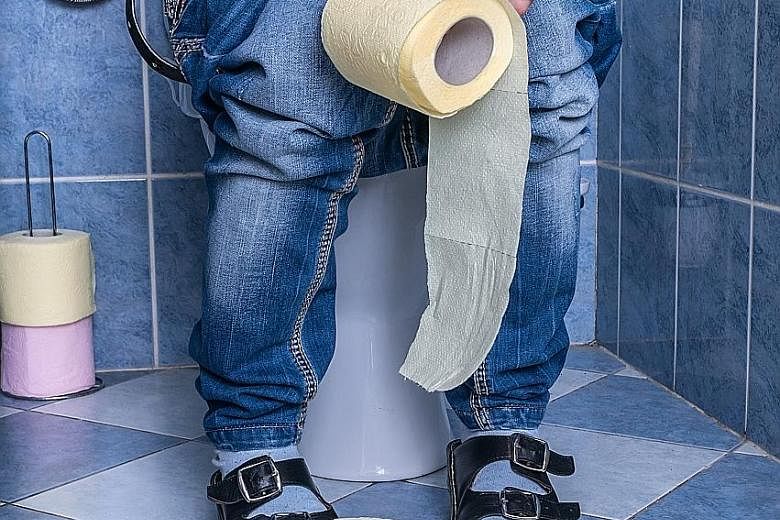Many people with bowel incontinence suffer in silence because of the acute embarrassment of soiling themselves involuntarily, often at socially inappropriate times.
This can lead to social isolation and even depression over time, significantly affecting their quality of life, said Dr Mark Wong, a senior consultant at the Singapore General Hospital's (SGH's) department of colorectal surgery.
Bowel incontinence is the inability to control one's bowel movements, leading to the soiling of one's clothes. It can be caused by factors such as birth-related injuries, injuries to the sphincter muscles in the anus and neurological disorders such as strokes.
Dr Wong dispenses advice on coping with bowel incontinence and the treatments available:
KNOW IF YOU ARE AT RISK
Bowel incontinence affects two main demographics - women and those aged 50 and above.
An SGH study showed that people in these two groups were three and five times more likely to be affected respectively.
Prevention is not always possible since even normal childbirth can result in incontinence in later years for some patients. Men with bowel incontinence often have had prior treatment for conditions affecting the pelvic area or prostate, or had colorectal cancer.
SEEK TREATMENT EARLY
Many people mistakenly think it is a normal part of ageing. In fact, you should seek medical attention as early as possible as treatment will be more effective when the symptoms are milder.
At least 200,000 people in Singapore - 4.7 per cent of the population - suffer from this condition.
Some patients live with bowel incontinence for 10 to 20 years and summon up the courage to seek medical treatment only when their symptoms worsen and their quality of life is severely affected.
Following efforts to raise awareness of the condition, SGH has seen a 10 per cent increase in the num- ber of such patients each year since 2009.
TREATMENT OPTIONS
Treatment starts with conservative measures such as dietary modifications, anti-diarrhoea medicine and pelvic floor exercises. About two-thirds of the patients at SGH have been treated successfully with these measures. Most of the time, treatment involves getting patients back on their daily routine.
Nerve-stimulation techniques such as percutaneous tibial nerve stimulation and sacral nerve stimulation are available as less invasive options, and have proven to be quite successful.
Sacral nerve stimulation involves the application of an electrical current to a sacral nerve at the base of the spine by a stimulator or pacemaker inserted into the buttock. Sacral nerves are the neural pathways that control the functioning of muscles in the pelvic area.
Stimulating the sacral nerve helps to restore normal communication between the brain and the nerve, thus alleviating the symptoms of bowel incontinence.
Percutaneous tibial nerve stimulation can be an alternative for less severe cases. It involves inserting a fine sterile needle at the ankle to deliver an adjustable electrical pulse that travels to the sacral plexus via the tibial nerve.
However, total recovery is not always possible with these outpatient procedures.
Surgery to correct the underlying problem, such as rectal prolapse or sphincter damage caused by childbirth, is the last resort.
•There will be a public forum at the Singapore General Hospital on pelvic floor disorders on Saturday from 1pm to 4pm. Admission is $5. To register, call 6576-7658 or e-mail public.forum@sgh.com.sg


